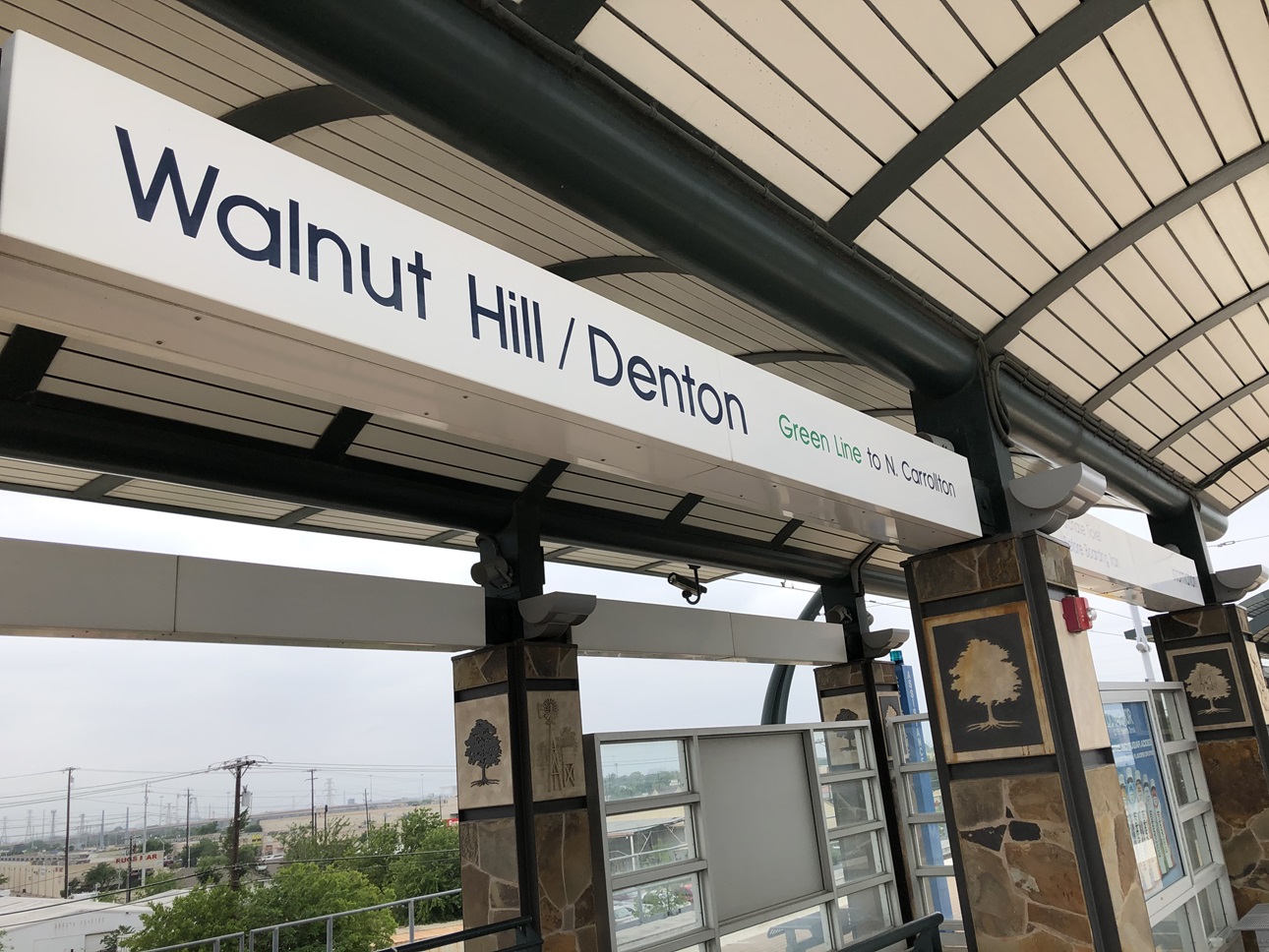Dallas, Texas: Tornado Recovery Emphasizing Urban and Climate Resilience around the Walnut Hill/Denton Drive Dallas Rapid Transit Station

A Resilient Land Use Cohort (RLUC) Virtual Advisory Services Panel
Report Summary:
Background and Assignment
In October of 2019, a tornado passed through north and northwestern Dallas, Texas, directly impacting an approximately 16-mile area and damaging or destroying homes, businesses, public facilities and the tree canopy.According to the City of Dallas, the destruction the storm produced became the costliest tornado event in Texas history at $1.55 billion.ULI was asked by the City of Dallas to convene a Virtual Advisory Services Panel (vASP)focusing on a study area approximately a half (1/2) mile around the Walnut Hill/ Denton Drive Dallas Area Rapid Transit station on the western edge of the tornado’s path.The panel was asked to provide recommendations on how to promote greater social cohesion within the study area business and demographic populations while promoting climate resilience and environmental justice. Specifically, the panelists were asked to address the following:
- What policy and regulatory adjustments should be considered to impact localized investments and broaden the types of small and minority- and women-owned business enterprises (M/WBEs) in the study area?
- What types of infrastructure investments would make multimodal transportation easier and more frequently chosen by the area’s residents and workers?
- What types of design and infrastructure are needed to attract and sustain a growing population of mixed-income residents and ensure climate resilience and environmental justice?
- What stakeholders and organizations need to be brought together to impact the physical environment, economic growth, and quality of life for residents and workers?
Key Recommendations
The panel highlighted opportunities and possibilities identified by panelists and stakeholders while also acknowledging and addressing existing challenges in the study area, such as urban flooding, extreme heat, safety issues and illicit activity. Recommendations focused on building stronger communities in and around the study area by centering on the needs of people in the community, addressing safety concerns, and utilizing the study area’s strengths. The panel also made a series of design recommendations including establishing a vision plan, connecting the study area to the surrounding neighborhoods and existing amenities, and enhancing the area’s climate resilience. Implementation was also a focus for the panel, with recommendations centering around approaches for investment and identifying a group to champion efforts in the study area.
Immediate actions among the panel’s recommendations that the sponsor can pursue include:
- Coordinate and support the group of champions
- Engage social services and providers
- Activate the DART station parking lot Install bilingual wayfinding
- Identify and publicize a safe and accessible resilience hub
- Explore development financing tools to leverage current opportunities
This vASP is part of an Advisory Services, Technical Assistance, and peer learning program called the Resilient Land Use Cohort (RLUC) that encourages enhanced resilience to climate change and related environmental and social vulnerabilities.
Report Summary: Background and Assignment
In October of 2019, a tornado passed through north and northwestern Dallas, Texas, directly impacting an approximately 16-mile area and damaging or destroying homes, businesses, public facilities and the tree canopy.According to the City of Dallas, the destruction the storm produced became the costliest tornado event in Texas history at $1.55 billion.ULI was asked by the City of Dallas to convene a Virtual Advisory Services Panel (vASP)focusing on a study area approximately a half (1/2) mile around the Walnut Hill/ Denton Drive Dallas Area Rapid Transit station on the western edge of the tornado’s path.The panel was asked to provide recommendations on how to promote greater social cohesion within the study area business and demographic populations while promoting climate resilience and environmental justice. Specifically, the panelists were asked to address the following:
- What policy and regulatory adjustments should be considered to impact localized investments and broaden the types of small and minority- and women-owned business enterprises (M/WBEs) in the study area?
- What types of infrastructure investments would make multimodal transportation easier and more frequently chosen by the area’s residents and workers?
- What types of design and infrastructure are needed to attract and sustain a growing population of mixed-income residents and ensure climate resilience and environmental justice?
- What stakeholders and organizations need to be brought together to impact the physical environment, economic growth, and quality of life for residents and workers?
Key Recommendations
The panel highlighted opportunities and possibilities identified by panelists and stakeholders while also acknowledging and addressing existing challenges in the study area, such as urban flooding, extreme heat, safety issues and illicit activity. Recommendations focused on building stronger communities in and around the study area by centering on the needs of people in the community, addressing safety concerns, and utilizing the study area’s strengths. The panel also made a series of design recommendations including establishing a vision plan, connecting the study area to the surrounding neighborhoods and existing amenities, and enhancing the area’s climate resilience. Implementation was also a focus for the panel, with recommendations centering around approaches for investment and identifying a group to champion efforts in the study area.
Immediate actions among the panel’s recommendations that the sponsor can pursue include:
- Coordinate and support the group of champions
- Engage social services and providers
- Activate the DART station parking lot Install bilingual wayfinding
- Identify and publicize a safe and accessible resilience hub
- Explore development financing tools to leverage current opportunities
This vASP is part of an Advisory Services, Technical Assistance, and peer learning program called the Resilient Land Use Cohort (RLUC) that encourages enhanced resilience to climate change and related environmental and social vulnerabilities.
RELATED
Video
ULI Dallas Resilient Land Use Cohort Advisory Services Panel Presentation
The City of Dallas asked ULI to convene an Advisory Services Panel, using the program’s new virtual format, to focus on a study area impacted by a recent tornado that passed through in October of 2019. Hear the panel chair and panelists present the p...


